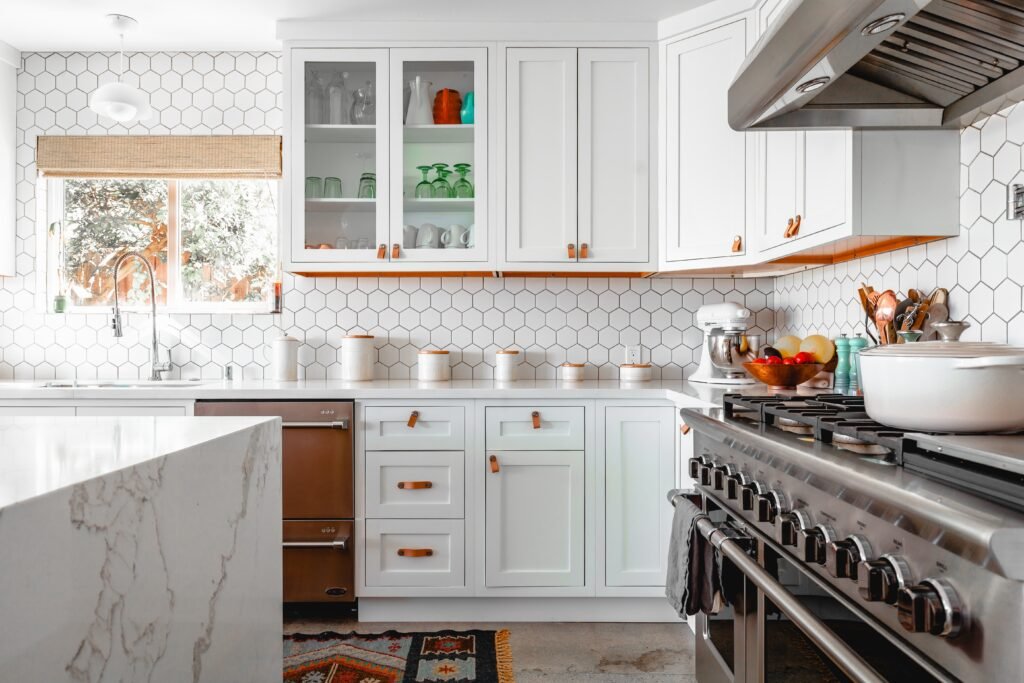
Unlike traditional ovens, convection ovens use little energy and heat up a lot quicker. While they are fantastic alternatives for old-school ovens and make cooking a lot easier, they can be tricky to clean. Proper precautions and general upkeep are necessary for these special ovens for to operate at their very best.
From cleaning your countertop convection oven regularly to daily performance checks, you will need to fulfill a series of steps to ensure that your convection oven is properly cleaned and functioning properly.
1. Always Keep the Convection Oven Door Sealed Properly
To put it simply, if your convection oven’s door is not sealed properly, you are most likely losing out on the incredible benefits of the oven.
Their cooking efficiency and low energy requirement are precisely why most homes and even restaurants prefer them. This makes them incredibly handy during peak production hours at restaurants. However, the food will not be cooked as quickly with limited energy consumption if there are gaps or cracks in the oven door.
Spaces, loose hinges, cracks, etc., keep the convection oven from retaining heat and making the cooking process easier and quicker. In case of a loose door with faulty hinges, broken bolts, or large cracks that simply cannot be overlooked, we recommend calling in the manufacturers or the vendor to make the necessary fixes, if you have its warranty with you.
Handymen and third-party service companies can also be helpful if you are on a tight schedule and want your convection oven fixed as soon as possible.
2. Keep an Eye on the Intake Fan for Any Issues
If proper care and maintenance are not invested in your convection oven’s intake fan, then it may become a potential source of technical issues, rendering the oven completely useless.
Regular cleaning is crucial for the convection oven’s intake fan. Otherwise, it may become clogged with impurities, dust, food particles, and particulate matter, etc.
To prevent the intake fan from clogging or layering with cakes of dust, you will need to invest time to fully clean it and get rid of the remaining debris.
Sometimes lack of proper care may cause other faults, especially if you are not inspecting the intake fan occasionally. As it is connected to other parts of the oven, it is recommended to keep a check on it.
If your oven’s fan is not functioning properly, it will directly impact the heating levels, cooking processes, and may even suck more energy than convection ovens are built for.
3. Clean Your Convection Oven Daily
All convection ovens should be thoroughly cleaned. Commercial convection ovens should be cleaned daily, if possible, especially due to their extensive use for long periods of time.
To get the most out of convection ovens and to have them perform as intended, there can be no compromise on cleanliness. If you are a restaurant owner, then you must ensure that your employees are trained to properly clean the oven racks, doors, surfaces, etc. They should be knowledgeable on the ways to scrub, brush, and wash away the food debris, oil stains, etc., with proper chemical cleaners that are specifically meant for such heavy-duty cleaning.
Homeowners with smaller varieties of convection ovens should also clean the inside of the oven after using it. If you do not use the oven so often, then make sure to clean at least once a week.
In case of food spillage on the countertop of the convection oven, do not wait for it to cook over the heat and crust into a hard stain. Instead, train your employees to handle such situations and to take all precautionary measures to clean the oven as soon as there is a sign of any spills or stains.
4. Check its Performance Regularly
Much like other appliances, you should always pay close attention to your convection oven and run performance tests regularly to avoid emergency situations. Faulty convection ovens with performance issues will result in undercooked, unappetizing foods.
If you are a restaurant owner, you may notice that faulty convection ovens take much longer for the food to prepare, and this may agitate or frustrate your customers.
Sometimes, spotting performance issues might be hard in a high-volume commercial kitchen. You will need to make note of cooking times and how much power each oven is consuming. Collecting this data can be used as a point of reference to compare with later performance checkups.
If you notice an increase in cooking time and it continues to go higher, then you may want to run a performance check or have your convection oven fixed before it worsens.
5. Get Help with the Equipment Service Company
When all else fails, do not hesitate to call in the professionals for a proper check-up and performance evaluation.
While many of these maintenance issues can be resolved in-house, sometimes it is beneficial to have the vendor or the manufacturer come in for a closer look, especially if the issues are recurring. After your warranty period is over, you can call in third-party service providers to help with oven maintenance even six months or yearly.



